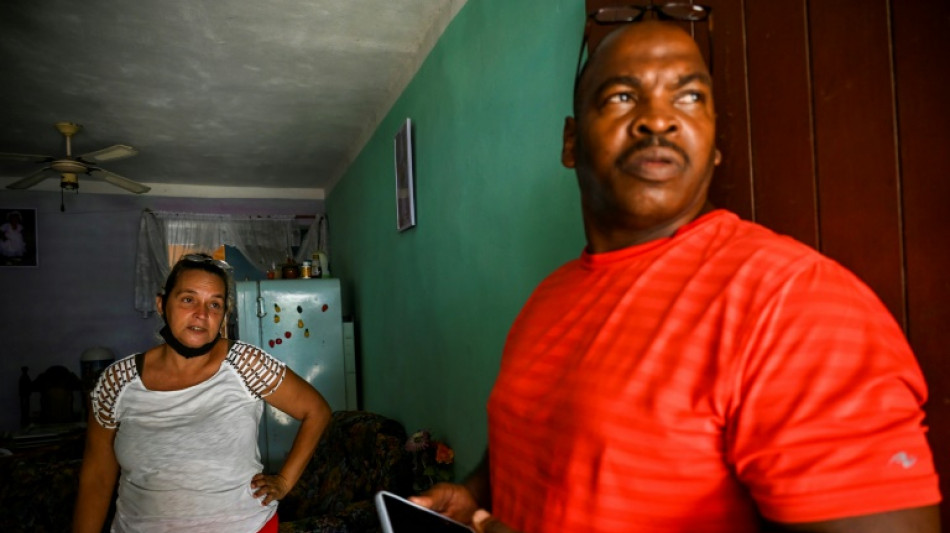

Impoverished Havana neighborhood reeling from protest convictions
When Wilbert Aguilar had to tell his wife that their son was sentenced to 23 years in prison for taking part in anti-government protests in Cuba, the 49-year-old day laborer's life fell apart.
"I had to wash, scrub, cook, because my wife lost her mind," he told AFP.
After that, he had to look after his daughter-in-law and his two granddaughters.
Aguilar's 22-year-old son Wagniel was one of more than 160 people from La Guinera, a poor Havana neighbrohood, to have been jailed for taking part in the unprecedented protests that broke out all over Cuba in July 2021.
Communist Cuba was, and still is, mired in an economic crisis and demonstrators chanted "We're hungry!" and demanded "Freedom!"
The government has since tried to make amends in La Guinera, a largely Black neighborhood that is part of Havana's most populous municipality, Arroyo Naranjo, also one of the capital's poorest.
Authorities have filled potholes, painted warehouses, reopened and restocked medical centers, and promised new homes to some families.
It is part of a program implemented in 60 Havana neighborhoods to improve people's lives.
But the demonstrators remain in jail.
Elizabet Leon Martinez, 51, worked as a manicurist before three of her five children were jailed.
"I can't give any more, my nerves are frayed, I don't have a life, I have nothing," she said, never taking her eyes off her telephone in case someone might call from prison.
"I look after my grandchildren because I have no work, nor could I work."
- 'Tough sentences' -
On July 12, 2021, hundreds of protesters converged on the police station at the entrance to La Guinera.
Communist Party (PCC) activists backed by a massive contingent of riot police blocked them.
Rocks, bottles and sticks were thrown and the streets became strewn with broken glass and rocks.
The only person killed during the protests died in this neighborhood. Dozens of people were injured and more than 1,300 arrested across the country, the rights NGO Cubalex said.
Of the 790 people tried, 488 received custodial sentences of up to 25 years, the government said, mostly for sedition.
The United States has said it would work with allies to support those "unjustly" jailed and hit out at the "tough sentences."
Pensioner Jorge Gil, 72, a PCC representative for La Guinera, says the protests were due to years of abandonment.
He lives with his family in temporary accommodation after his house was demolished -- and due to be rebuilt -- as part of the neighborhood improvement program.
But the materials to rebuild his house never arrived.
Opposite Gil lives Isabel Hernandez, 44, in a recently repainted house with a corrugated metal roof.
One of her sons was also jailed over the protests.
Despite this, her house was refurbished in just six months thanks to the improvement program.
"I'm very happy," she said.
- 'Their weapon was their voice' -
Some people view the suppression of the July 2021 protests as a triumph for the communist revolution.
"We are more than super thankful, president, for all the changes in our neighborhood," said Ileana Macias, a local leader and member of the Santeria religious community, during a meeting between women from the community and the country's leader Miguel Diaz-Canel.
But Wilbert Aguilar is sad. He denies the protesters were "counter-revolutionaries."
"They weren't armed, their only weapon was their voice," he said.
His son Wagniel's sentence was reduced to 12 years on appeal.
Even Gil, who vehemently defends the island nation's socialist system, admits he feels pain.
"I hope this is a problem that will be quickly resolved and that the majority of these youngsters will be freed because at the end of the day they're youngsters and need to learn."
M.Sullivanv--NG


